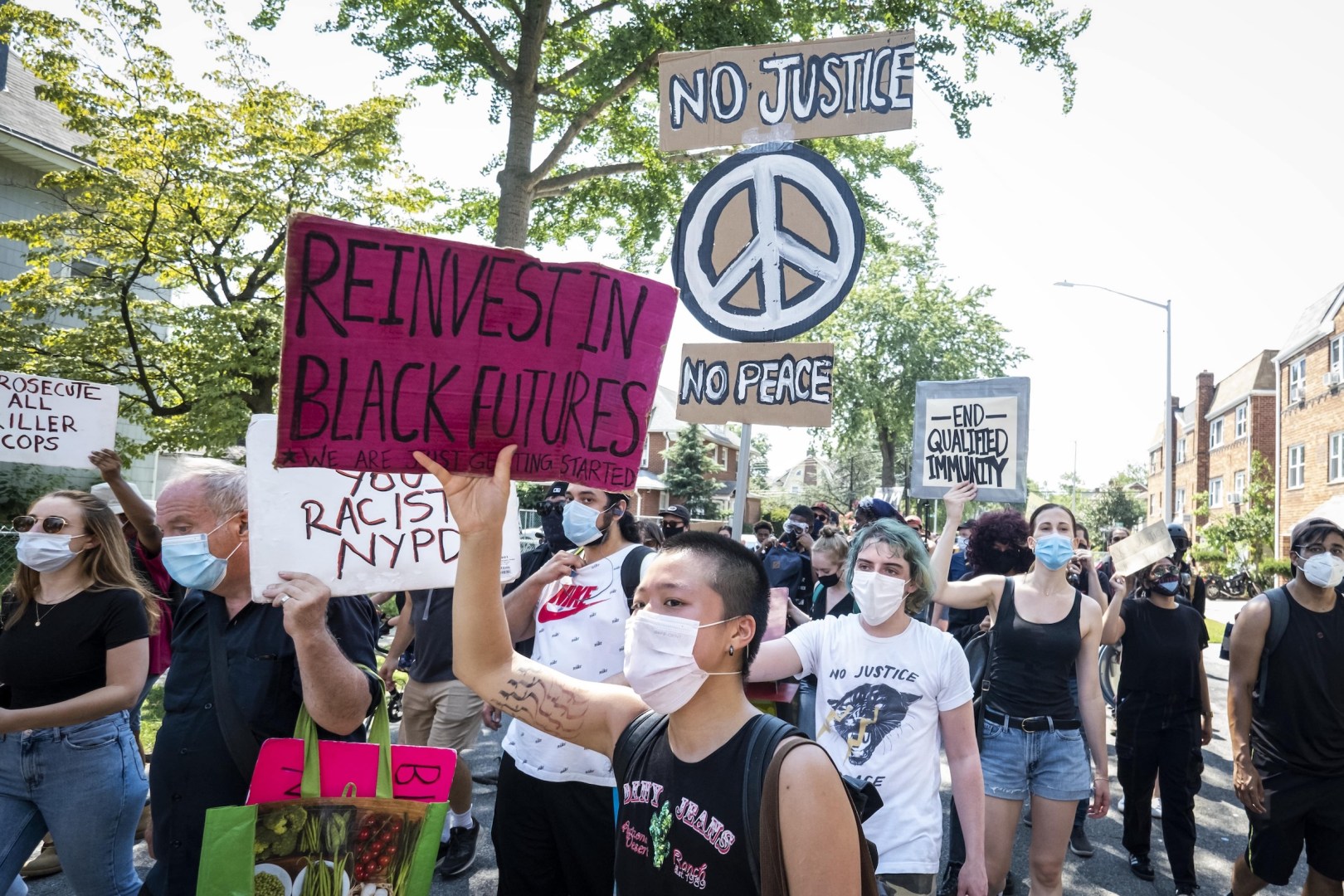
Commentary
-
Our commentary partners will help you reach your own conclusions on complex topics.
Okay, I want to have a real conversation with you about the word reparations and what it means. Listen, don’t judge it before you hear this part, the American government is not against reparations. As a matter of fact, you are likely not against reparations. Understand, reparations is simply a word that means repair. And in order to repair something, you have to acknowledge it is broken. Once you can acknowledge that it is broken, you must then acknowledge it needs to be fixed. Once these dynamics are established, you then look for the responsible party. In the case of reparations for the descendants of slaves, or reparations for black people in the United States of America at large, the party who broke it is the American government. We can all agree to that.
Let’s talk about America’s fascination with reparations. As a country, we have given reparations to Native Americans, not to the tune they deserved, but it is a form of reparations or repair. We’ve also given reparations to other groups, such as the Japanese, and members, family members, who were connected to those killed in the Holocaust. We did that recently. We gave governmental money and benefit because we thought it was worthy of repair — and rightfully so.
You see, here’s the thing. Reparations is not actually opposed by the United States government. It’s not opposed by lawmakers. Because this country has voted routinely to grant reparations to various groups that they have deemed to be worthy of this due to government action or even government inaction.
They are, however, seemingly against reparations for Black people. That’s different. Let me take you to a conversation that Dr. Phil had on his program not too long ago. And I want to I want you to understand why it’s offensive to many Black people in America. Dr, Phil said, if you give, if you give black folks $300,000 plus, or $800,000 plus, it will be a total disaster. He talked about how this would not create generational wealth, etc. Okay. That’s his opinion. Now, he tried to clean it up by saying if you give any group that much money, and then he started naming other groups, all right. Now he left off groups, like rich people; he said poor people, but he didn’t say rich people.
Here’s the reality. Dr. Phil, you can facilitate discussions like this, but you do not bear the credentials to conclusively say what Black people should or should not receive, because it is on us to have that conversation with you and others. We lead that conversation, not you. It’s very simple. To suggest that somehow in order to qualify for reparations, Black people need to be trained how to spend money. That’s basically what Dr. Phil said. There needs to be guidance and coaching. And I’m not saying those elements should not be in place. What I am saying is that you don’t use it as a prerequisite in order to get money that you are all ready owed. Remember, reparations is not a handout. It is based on this one reality.
There was an unfair government-approved or government-led operation that made this dysfunction and we have to create a remedy for it. So reparations is not based on race. It is based on the behavior of the government toward a particular demographic. And if that particular demographic happens to be of one race, then naturally that’s where the remedy resides. You know who else received reparations? Slave owners. Look it up. DC emancipation, because of the hurt and economic harm that slave owners would receive due to the freeing of the enslaved African. They were given reparations based on the number of enslaved human beings they could no longer legally enslave. Isn’t that interesting? So let’s count the ways various groups after receive reparations, even slave masters receive reparations during that era, but no reparations for African Americans. If you believe it was broken by the government, you have to believe that the government is part of or should be part of the remedy. Reparations should not be off the table as some kind of fringe discussion. It is a normative discussion, a credible discussion and a needed discussion.
-
Joy Reid firing at MSNBC rooted in systemic bigotry
Host Joy Reid has been fired from MSNBC as part of a broader slate of programming changes under new network president Rebecca Kutler. Declining ratings after the 2024 election may have influenced MSNBC’s decision. The decision has polarized media observers across the political spectrum. Some liberal viewers, journalists, and activists argue that the firing is… -
Hypocritical Elon Musk has all the power with zero accountability
Elon Musk has become a pivotal and highly controversial figure in Donald Trump’s second term as president. His stance on free speech has also been contentious, with critics accusing him of hypocrisy due to actions and statements that sometimes contradict his stated principles. Watch the above video as Straight Arrow News contributor Dr. Rashad Richey… -
How Democrats should combat Trump’s illegal takeover
In a recent “Dear Colleague” letter, Senate Minority Leader Chuck Schumer, D-N.Y., laid out a strategic roadmap for Democrats to counter the Trump administration, calling its actions a “coordinated assault” against the interests of the American people. While the Democratic minority has had little power to stop Trump’s efforts to dismantle federal agencies and expand… -
Republicans need to take a stand against Elon Musk
Elon Musk has come under heavy public criticism lately for a number of bold actions that experts say are illegal, unconstitutional and dangerous to national security. While Democrats have been pushed hard by their constituents to raise protests against Musk’s moves, Republicans in Congress have been quiet, at times even defensive of Elon Musk. Watch… -
Trump’s mass pardons of Capitol rioters undermines US democracy
Over 200 rioters serving prison sentences for their roles in the Jan. 6, 2021 attack on the U.S. Capitol have begun to be released shortly after President Trump began his second term as president. Trump issued pardons to more than 1,500 individuals, including those who had assaulted police officers. The “full, complete and unconditional” pardons…
Latest Stories
-
 Getty Images
Getty Images
Sexual violence used as war tactic against Sudanese children: UNICEF
-
 Getty Images
Getty Images
Trump praises BlackRock for $19 billion Panama Canal investment
-
 Getty Images
Getty Images
President Trump announces arrest of Kabul airport bombing suspect
-
 Getty Images
Getty Images
Supreme Court requires Trump admin to pay $2B in frozen foreign aid
-
 Getty Images
Getty Images
US State Dept. reestablishes Houthis as ‘foreign terrorist organization’
Popular Opinions
-
In addition to the facts, we believe it’s vital to hear perspectives from all sides of the political spectrum.
Latest Opinions
In addition to the facts, we believe it’s vital to hear perspectives from all sides of the political spectrum. We hope these different voices will help you reach your own conclusions.
The opinions published in this section are solely those of the contributors and do not reflect the views of Straight Arrow News.





















Latest Commentary
We know it is important to hear from a diverse range of observers on the complex topics we face and believe our commentary partners will help you reach your own conclusions.
The commentaries published in this section are solely those of the contributors and do not reflect the views of Straight Arrow News.
Dr. Frank Luntz
Pollster and Political Analyst‘Biased’: What Americans think of ‘mainstream media’
‘Getting rid of them’: Americans discuss Trump and immigration
‘Woke’: Why some Biden 2020 voters backed Trump in 2024